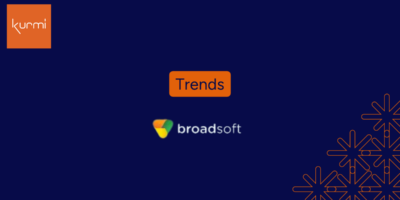We now have so many different admin platforms for managing Unified Communications solutions that it can be hard to use one without specialized technical knowledge. But delegating certain settings to less expert people, even end users, can simplify the process and reduce costs. With advanced RBAC features, you can manage administrator profiles and rights, to delegate without compromising security.
Some problems can even be solved by users if they have the permission and, above all, the option, with simple, user-friendly access to certain features. This is where the second functional layer – the “self-serve” portals offered by some user management solutions – comes in to play.
Role-Based Access Control (RBAC)
The great advantage of Role-Based Access Control (RBAC) is that it grants some access to local managers, even those without a technical background, so they can create services for their organization using packages developed upstream by central admins. And HR has read-only access to all workstations deployed with their features, but is not authorized to change them. These options are available only through a portal that clearly displays the information. And it’s important to be able to fine-tune RBAC, especially for sensitive functions like account deletion, where one false move can spell disaster. Fortunately, with a good user-management solution, you can install safeguards.
“For example,” says Kurmi’s Bruno Guirardel, “the local admins of a large French bank had access to all systems and their features. Once Kurmi’s solution was in place, these local admins couldn’t perform bulk user management – so they couldn’t accidentally apply an operator error to all employees at once. When admins objected to making changes one by one, the bank reauthorized bulk management but set a maximum of 50 users.” This compromise was possible thanks to the granularity of the solution’s configuration. IT teams can work with confidence, and local admins retain some autonomy – all in a completely secure environment.
Any highly-decentralized organization needs a solution with advanced delegation features. With the service-pack feature in Kurmi, one company was able to deploy a lower-cost communications system for several thousand employees, backed by a network of just over 200 trained admins based at two or three regional centers of expertise. The experts led two-day training courses focusing on how to set up a phone terminal and create a user profile. Working from the templates (service packs) developed by the center of expertise, administrators learned how to assign the different services to users.
Two types of packs were created: a standard pack, assigned to everyone, and a more advanced pack including single-number service and Jabber mobile.
By drastically streamlining the add, modify and delete operations, provisioning software makes it easier to delegate these tasks. This helps enterprises optimize the resources they put toward operations. And that improves TCO. What’s more, teams will have a single interface for managing all the hardware they need to provide voice, video, and instant messaging services.
Autonomy on user access management
A portal designed for end users brings its own challenges: freeing up IT and helpdesk services and getting more users on board with Unified Communications & Collaboration. Some operations, like generating a new password, can be managed directly by employees. Yet however simple, these can end up costing the company. First, the employee trying work finds they’re blocked. So they have to open a ticket in the company’s internal system. The helpdesk team analyzes the ticket and escalates it to Level-2 support. This wastes time and money – and that adds up. But employees can easily manage this kind of operation, and referral management, on a portal. And this portal has been designed to meet their expectations, with better ergonomics for a better user experience.
The upshot of all of this? High quality of service and faster incident resolution for a superior user experience.



